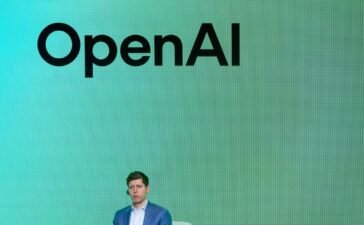Microsoft’s close partner and collaborator, OpenAI, might be suggesting that DeepSeek stole its IP and violated its terms of service. But Microsoft still wants DeepSeek’s shiny new models on its cloud platform.
Microsoft today announced that R1, DeepSeek’s so-called reasoning model, is available on Azure AI Foundry service, Microsoft’s platform that brings together a number of AI services for enterprises under a single banner. In a blog post, Microsoft said that the version of R1 on Azure AI Foundry has “undergone rigorous red teaming and safety evaluations,” including “automated assessments of model behavior and extensive security reviews to mitigate potential risks.”
In the near future, Microsoft said, customers will be able to use “distilled” flavors of R1 to run locally on Copilot+ PCs, Microsoft’s brand of Windows hardware that meets certain AI readiness requirements.
“As we continue expanding the model catalog in Azure AI Foundry, we’re excited to see how developers and enterprises leverage […] R1 to tackle real-world challenges and deliver transformative experiences,” continued Microsoft in the post.
The addition of R1 to Microsoft’s cloud services is a curious one, considering that Microsoft reportedly initiated a probe into DeepSeek’s potential abuse of its and OpenAI’s services. According to security researchers working for Microsoft, DeepSeek may have exfiltrated a large amount of data using OpenAI’s API in the fall of 2024. Microsoft, which also happens to be OpenAI’s largest shareholder, notified OpenAI of the suspicious activity, per Bloomberg.
But R1 is the talk of the town, and Microsoft may have been persuaded to bring it into its cloud fold while it still holds allure.
Unclear is whether Microsoft made any modifications to the model to improve its accuracy — and combat its censorship. According to a test by information-reliability organization NewsGuard, R1 provides inaccurate answers or non-answers 83% of the time when asked about news-related topics. A separate test found that R1 refuses to answer 85% of prompts related to China, possibly a consequence of the government censorship to which AI models developed in the country are subject.
TechCrunch has an AI-focused newsletter! Sign up here to get it in your inbox every Wednesday.
You Might Also Like
Chinese marketplace DHgate becomes a top US app as trade war intensifies
The Trump trade war has gone viral on TikTok, pushing a Chinese e-commerce app, DHgate, to the top of the...
Hertz says customers’ personal data and driver’s licenses stolen in data breach
Car rental giant Hertz has begun notifying its customers of a data breach that included their personal information and driver’s...
OpenAI plans to phase out GPT-4.5, its largest-ever AI model, from its API
OpenAI said on Monday that it would soon wind down the availability of GPT-4.5, its largest-ever AI model, via its...
Google’s newest AI model is designed to help study dolphin ‘speech’
Google’s AI research lab, Google DeepMind, says that it has created an AI model that can help decipher dolphin vocalizations,...










